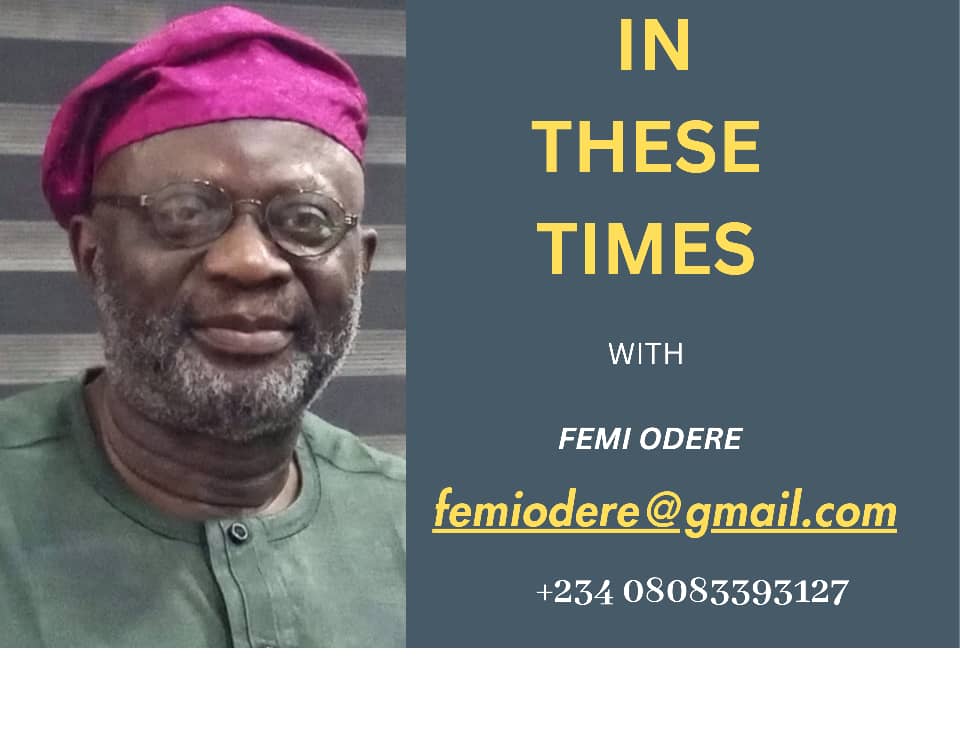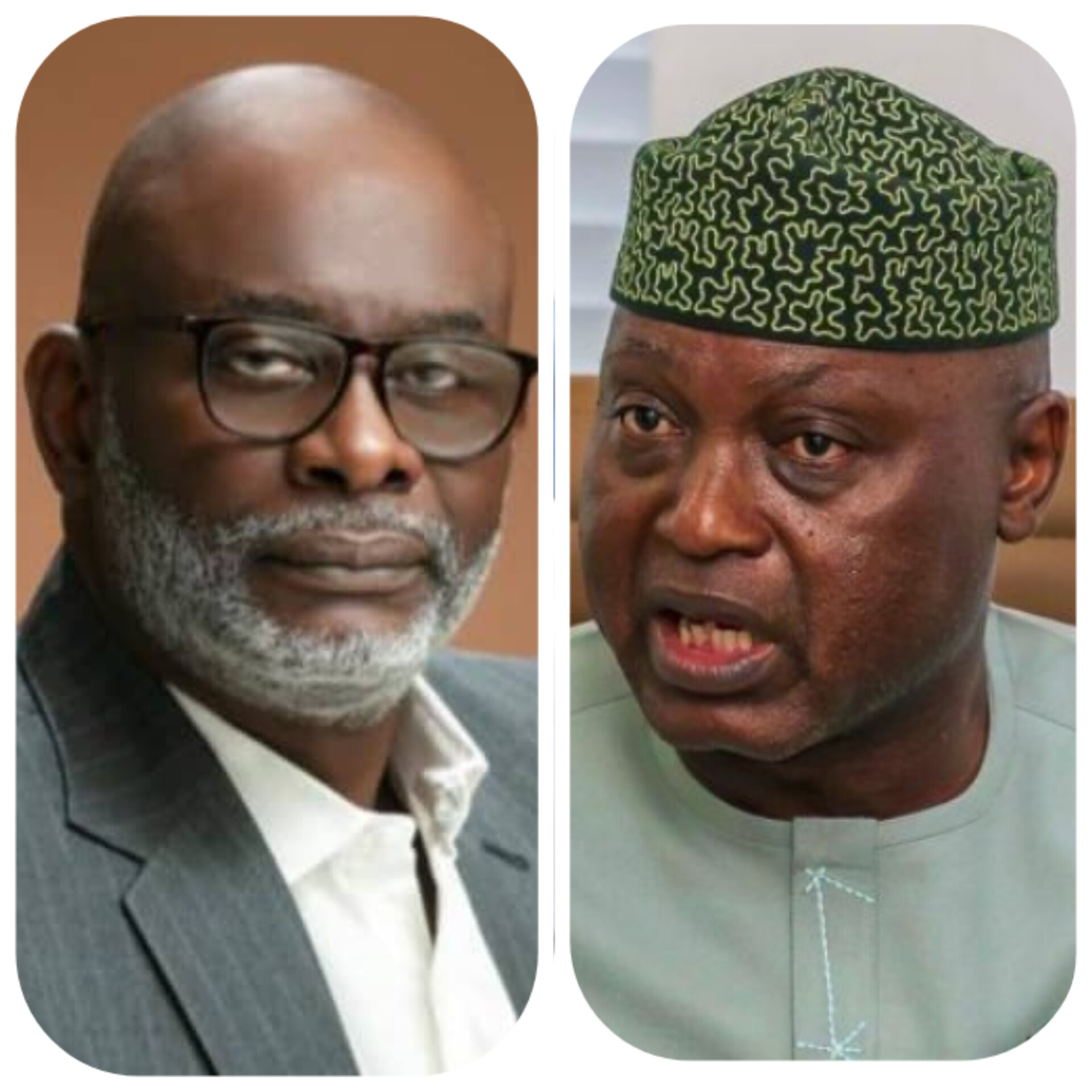- By Femi Odere
Considering both covert and overt, if not ignominious roles he played during the struggle by the 17 southern governors to cause the pendulum of the country’s political leadership to swing South for the sake of equity, fairness, and justice rather than his preference and that of his ilk that it remains lethargically if not permanently stationed in the North for nothing other than hubris (whereas some would insist that his roles for and on behalf of the political tendency he represents have insidious and sinister motives), Dr. Hakeem Baba-Ahmed’s incessant interrogation of President Tinubu’s administration within a month is not entirely surprising.
To be sure, Baba-Ahmed is the spokesperson of the Northern Elders Forum (NEF), a largely conservative, sociocultural pressure group that makes no pretense that it wants the North to be the decider of the nature, texture, and content of the country’s politics if it cannot be in the driver’s seat of the polity’s power configuration at any particular point in time.

In his latest piece, which is the second (I think) within a month of Tinubu’s assumption of office entitled “The Illusion of Political Time” which Baba-Ahmed said had to be written as a further “explanation” to a simple question that was asked by a journalist who wanted to know if he was “impressed by the popular perception that Nigerians have been experiencing effective and positive governance since 29th May” of President Tinubu’s government to which “not really” was his retort, the NEF spokesperson, to the discerning, could not have said otherwise as one doesn’t expect his apple to have fallen too far from his entrenched conservative political tree, as we shall see presently.
For starters, Hakeem Baba-Ahmed, a Fulani of Mauritanian origin, is a smooth and calculating northern irredentist who, perhaps sees his primary duty as standing at the barricade for the defense of Fulani hegemony as well as the political supremacy of the entire North since flag independence. But he presses himself to this service by stealth and subterfuge.
And it matters very little to him and the tendency he represents if the country comes to grief in the process—-as she did—-in the last elections in which his younger brother Dr. Yusuf Datti Baba-Ahmed was cleverly but insidiously positioned to rein in the pathetically clueless Peter Obi, the Labour Party presidential candidate in the unlikely possibility of him winning the presidential poll, as his vice president. But we need not be detained here by these ignoble roles and utterances of Baba-Ahmed in the run-up to the primaries of the two main political parties.
Hakeem Baba-Ahmed may have accepted, even if grudgingly, the fact that the decision by President Tinubu to remove the fuel subsidy was the right thing to do, his seeming prevarication and discomfiture and his subtle excoriation of the president’s policy decisions namely “the liberalization of the Naira/Dollar exchange rates and reforms around funding of University education and increase in cost of electricity consumption” leaves much to be desired.
While we ought to thank Baba-Ahmed for educating us on the different scenarios by which a new Chief of State could gain acceptance and popularity from what a predecessor did—-or did not do—-he, in his characteristic manner, refused to see a nexus between the policy decisions of the Tinubu government, some of which are quite novel in the annals of the country’s governance and the President’s preparation, which was a significant part of his campaign messages, that earned him his stripe as the President of the Federal Republic of Nigeria. Yet, Baba-Ahmed would want to remind us that US President Abraham Lincoln was perhaps the most prepared for power in his submission. It cannot get any more disingenuous than that.
Yes, former President Muhammadu Buhari may not have made any provision for the subsidy in the 2023 budget which, it can be argued, may have given President Tinubu the needed impetus to finally slay the 300-pound gorilla that had long remained in our China shop on his Inauguration Day, to which Hakeem Baba-Ahmed alluded in the piece, but it never occurred to him why the former president waited until the very tail end of his eight-year tenure to stylishly expunge the subsidy from the budget in an election year just as he did with the so-called currency redesign policy.
It is even more curious why Hakeem Baba-Ahmed and his NEF elected to remain silent in those eight years except to now tell us that the president’s decision on fuel subsidy decision “will make life even more difficult for most Nigerians.”
The one-track exchange rates and student loan for higher education policy decisions of President Tinubu, among other game-changing pronouncements he made within a month of his administration—-and would still make more of—-are the results of painstaking research of many years of his professional teams in the different indicators of national development which has affirmed the president’s preparation for his present job.
It is hasty, if not mischievous for Baba-Ahmed to have advanced the argument that the nation is being shocked into “near-paralysis with a whole battery of changes” that “may have a numbing effect on elements that may be primed to routinely kick against policies that hurt the vulnerable.” On the contrary, the country’s economy has been invigorated because of these unprecedented policy decisions while the Nigerian populace, especially the everyday people, are instinctively of a collective opinion that the country is on the right path of growth and development with President Tinubu in the governance saddle.
Hakeem Baba-Ahmed should be reminded of the fact that the vulnerable understand what needed to be done by President Tinubu (and he’s doing it) to improve their material conditions. Baba-Ahmed has embarked on a hopeless voyage to redirect enduring, life-enhancing policy decisions that the poor and the vulnerable see as being primed for the improvement of their material conditions in both the medium and long term.
Perhaps more fundamentally important is what seems to be the resistance of Hakeem Baba-Ahmed to President Tinubu’s true progressive policy imperatives that must necessarily subvert the entrenched, dominant conservative socio-economic paradigm that had stunted the country’s development for too long which Baba-Ahmed and his NEF represents.
What’s unfolding—-gradually but surely—-is the clash of two political ideologies; one is as old as a Neanderthal while the other remains young and vibrant because it speaks to the exigencies of our time. And Dr. Hakeem Baba-Ahmed is terrified that the old, lethargic, unedifying, and ineffectual conservatism is no longer what the political scientist ordered in a 21st-century world. A conservative political ideology of the Northern hue must be slain for its own good if the Nigerian nation must occupy its rightful place in the comity of nations.
This is the new reality (and not illusion) of political time with the Tinubu ascendancy.
- Femi Odere was Head of Media and Publicity, Diaspora Directorate, Tinubu-Shettima Presidential Campaign Council.




